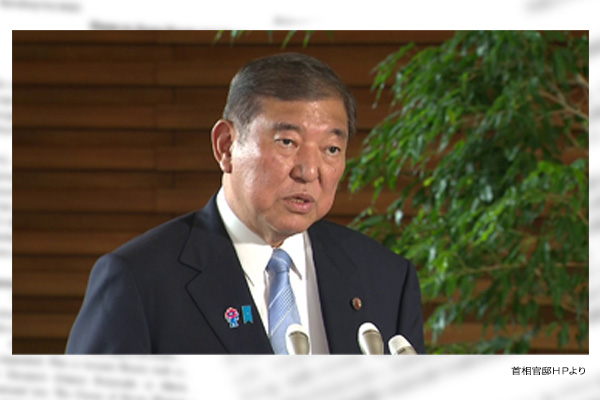Will something similar to the “Kono Statement” regarding the comfort women issue be repeated? This refers to an “Ishiba View” that Prime Minister Shigeru Ishiba is considering to announce to mark 80 years since the end of World War II. In 1993, then Chief Cabinet Secretary Yohei Kono acknowledged the coercive nature of recruiting comfort women in his Kono Statement, which was issued without cabinet approval in the final days of Prime Minister Kiichi Miyazawa’s cabinet. The Ishiba government is also nearing its end, and the Ishiba View is likewise not expected to undergo cabinet approval.
Future-oriented view cannot be expected
The Kono Statement has long been a hindrance to Japan's diplomacy. In 2015, then Prime Minister Shinzo Abe reviewed the process of drafting the Kono Statement that based the acknowledgement of the coerce recruitment only on interviews with 16 former comfort women. The review found that the interviews were sloppy. Even so, in the end, the Kono Statement could not be rescinded.
Ishiba intends to issue the Ishiba View, just like the Kono Statement, despite being near the end of the administration. Initially, Ishiba had wanted to issue a formal Ishiba Statement with cabinet approval after collecting opinions from experts. Amid the political turmoil following his ruling Liberal Democratic Party’s crushing defeats in a series of important elections, however, he could not afford to organize a panel of experts. So, he is now trying to issue his personal view, instead of the official statement, which is likely to reflect his personal perception of history.
As Ishiba was a member of the Abe cabinet, the Ishiba View would not deny the Abe Statement that marked the 70th anniversary of the end of the war or add anything to it, said Ishiba’s national security adviser Akihisa Nagashima in his social media post. While referring to the past, the Abe Statement emphasized a future-oriented attitude, saying: “We must not let our children, grandchildren, and even further generations to come, who have nothing to do with that war, be predestined to apologize.”
On the other hand, Ishiba has put emphasis on Japan’s responsibility for the war. “The root of many problems is that Japan has not faced the responsibility for the war squarely since its defeat,” he said in his blog dated August 23, 2019.
It is hard to imagine that Ishiba, who believes that Japan must come to grips with the war, would come up with a future-oriented vision as seen in the Abe Statement.
Endorsing the Sino-Russian historical view?
What’s additionally problematic is that Ishiba is considering to issue his view on September 2, the day when Japan signed the Instrument of Surrender. This contrasts with the perception held by most Japanese who regard Emperor Shōwa’s August 15 surrender broadcast as representing the end of the war.
After August 15, 1945, the former Soviet Union massacred many Japanese and occupied the Northern Territories, designating September 3 as its victory day. Russia and China have taken over this position. Ishiba’s announcement of his view on September 2 could risk endorsing the position of Russia and China.
I oppose the issuance of the Ishiba View using his position as the prime minister.
Takashi Arimoto is a Planning Committee member at the Japan Institute for National Fundamentals and a columnist at the Sankei Shimbun newspaper.


